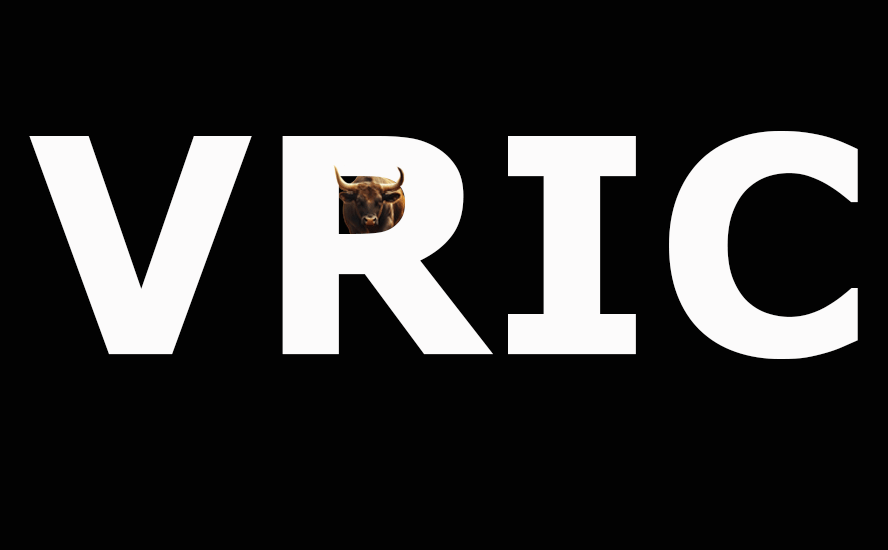For Canadian cannabis companies, the US is the prize

The legalization of cannabis products is still big news in Canada, but the blue-sky potential for most companies in the pot space is probably south of the border. That’s the conclusion Ahead of the Herd came to after researching the two markets.

No-one should be surprised at this finding, despite the fact that Canada was the first developed nation (sorry Uruguay, you don’t really count) to legalize, thereby getting a head start on US weed-cos, and has the four biggest producers in the world – Canopy Growth, Tilray, Aurora Cannabis and Aphria – with a current combined market capitalization of C$45 billion.
The fact is, even though the US federal government still prohibits the growing and distribution of marijuana, 11 states have fully legalized and more are planning to do so this year and next. The enormity of the US cannabis market makes it tantalizing for Canadian companies to expand into. In that way selling cannabis to the US is no different than selling lumber, tires or steel. The ideas and testing grounds may be in Canada, but it’s state-side that the real money is to be made.
This article will look at the state of the US industry and the direction the country is going as far as the emergence of regulated cannabis.
$23B market
A 2018 report by Arcview Market Research and BDS Analytics states that in 2017, the global legal marijuana market was worth $9.5 billion. Of that, the United States accounted for 90%. Canada’s share was 6%, or $0.6 billion. Now granted, that was before Bill C-45 was passed, ushering in the era of Canadian legal cannabis (medical marijuana has been legal and readily available since 2001), but it gives you an idea of US dominance, even with a handful of states going to full legalization.

By 2022 the legal cannabis market in the US is expected to reach $23.4 billion. Canada’s share will be $5.5 billion, about a quarter the size of the US market. North America is by far the most accessible place to sell and consume legal weed, with the US in three years representing three-quarters of the world market value and Canada 17.5%, according to the report. The rest of the world combined only makes up 4%.
Growth will be driven by recreational, not medical use. We already see a decline in the percentage of medical users, from 100% in 2013 to 71% in 2017.
Not only is the US expected to have a far larger base of cannabis buyers and sellers, it’s where all the branding will likely take place. Canadian cannabis legislation prohibits most marketing and branding, with Health Canada wanting products to be sold in plain packaging so as not to glamorize the drug or make it appealing to children.

Consider the US tobacco industry without Marlboro, Camel or Winston. If and when Big Tobacco gets its hands on cannabis, expect sales to take off, by distancing slick American packaging from Soviet-style Canadian wrapping.

The higher profit margins expected to be reaped from better marketing threaten to resign Canadian legal marijuana growers to pot farmers producing a low-margin commodity.
“We’re going to have a great cannabis industry here, but the people who, for whatever foolish reason, thought that Canada was going to dominate the world of cannabis, they need to disabuse themselves of that notion because it was never founded on any reality,” Afzal Hasan, president of Origin House, a California-focused cannabis branding firm, told the Financial Post in a recent article.
While many weed companies are based in pot-friendly Canada, US cannabis firms are starting to take a bigger chunk of the market, both in terms of size, and number of listings.
The Canadian Securities Exchange lists a whopping C$5 billion in cannabis-related companies with a total market capitalization of $9 billion. Out of that $5 billion, 23 companies representing over $2 billion are American weed-cos. Four of the biggest marijuana companies including two with valuations over $10 billion are Canadian, but half of the top 10 are now operating in the US, after a surge of American companies listed their shares in Canada, noted the FP.

The most valuable have acquired licensed to grow and sell weed to all states that have legalized marijuana, earning the status of “multi-state operators”.
The Toronto Stock Exchange has threatened to delist any Canadian company with marijuana dealings in the US, due to the federal prohibition on cannabis. This puts Canada’s publicly traded licensed producers, and any other TSX-listed firm with a marijuana-related business, at a disadvantage to American companies.
American weed-cos have another advantage over their Canadian cousins: Previously reluctant to jump into the pot industry due to the federal prohibition on weed, institutional investors like hedge funds are now feeling more comfortable, after President Trump indicated he doesn’t intend to prosecute pot businesses operating legally in states that have eased restrictions, the Financial Post reported.
The state of getting high, or just mellow
One of the results of the US mid-term elections in November was Michigan voting to approve recreational use of pot. That makes 11 US states now with full legalization regimes, and 33 states that allow medical marijuana. Click on this link for an interactive map of marijuana legality by state.
The pendulum is certainly swinging in the direction of legal cannabis. In November a number of governors were elected that have shown a clear intention of following their pro-pot peers. These include Gov. Ned Lamont (D) of Connecticut, Gov. J.B. Pritzker (D) of Illinois, Gov. Tim Walz of Minnesota, and the governors of New Hampshire, New Jersey, New Mexico, New York, Rhode Island and Vermont.
Connecticut’s Gov. Lamont for example said during his campaign that marijuana is “an idea whose time has come” and pledged in a post-election press conference to make it one of his priorities this year. Minnesota’s incoming Gov. Walz took over from a fellow Democratic governor who opposed legalization, and promised to “replace the current failed policy with one that creates tax revenue, grows jobs, builds opportunities for Minnesotans, protects Minnesota kids, and trusts adults to make personal decisions based on their personal freedoms.”
In New York, Democratic Gov. Andrew Cuomo flipped from calling marijuana a gateway drug to saying “it’s time to legalize the adult use of recreational marijuana once and for all.” New York City Mayor Bill de Blasio has also endorsed legalization.
States that appear ready to either pass cannabis legislation this year or put it to a ballot in 2020, include Kansas, Pennsylvania, Arizona, Florida, Ohio and North Dakota. Even re-elected Gov. Greg Abbott in Republican-dominated Texas indicated he’s open to some form of marijuana decriminalization, an idea that the state Republican Party officially endorsed last year, according to Forbes.
Public support for marijuana legalization in the US is estimated at around 66%.
Washington on board?
As noted above however the US federal government’s prohibition on cannabis is an obstacle for cannabis companies, especially those listed in Canada, wanting to do business south of the border. It’s also a problem for anyone who uses pot or has done so in the past, as many people who have crossed the border can attest.
Over the past few years thousands of Canadians have been denied entry, or even banned from traveling to the US for life, by truthfully answering a simple question: “Have you ever smoked pot?” The situation is especially bizarre crossing the border from BC, where both Canada and Washington State have legal weed.
Even here though, we are seeing a thawing of sorts, as indicated by the recent remarks of high-profile American politicians. While former Attorney General Jeff Sessions was adamantly against legalization, the new AG, William Barr, has said he “will not go after” marijuana companies in states where cannabis is legal, although he personally opposes making pot legal, the Colorado Sun reported.
Democratic presidential contenders Sen. Kamala Harris of California, New Jersey Sen. Corey Booker and former Texas congressman Beto O’Rourke all want the government to legalize.
Even President Trump has tipped his MAGA hat in favor of pot. Last year Trump stated he would likely support the STATES Act exempting legal cannabis businesses from the Controlled Substances Act, thus removing them from federal prosecution, as well as banking and tax issues that currently plague the industry, Forbes reported. During the 2016 presidential campaign Trump indicated he is in favor of medical marijuana but not recreational pot. But he also said in a Colorado TV interview it should be up to the states to decide.
Forbes notes that getting in front of the issue could benefit Trump in 2020 if he goes for re-election, with the three most important swing states – Ohio, Pennsylvania and Florida – all having mixed legal (eg. legal medical but illegal recreational) pot status.
Conclusion
The opportunity for cannabis companies has never been better. While a lot of Canadian investors have been focused on the licensed producers and their frankly insane valuations, the fact is the Canadian pot market is just the staging point in what for a lot of companies is the search for the holy grail: the US market.
Just take California as an example. The state has fully legalized medical and recreational marijuana, breaking open access to a population of 39 million potential consumers. That’s about 3 million more people than all of Canada. The GDP of California is 75% larger than Canada’s, at $2.8 trillion versus $1.7 trillion in 2017.
But it’s not just market size that has Canadian weed-cos, and accessory companies like those that make pot paraphernalia, edibles, testing equipment, greenhouse supplies, etc., eyeing the US. If Big Tobacco starts branding cannabis, the appeal of the US market will be even greater.
Right now the federal prohibition on cannabis is an obstacle for TSX-listed companies wanted to expand to the States, but this could become a mute point if Washington decides to rescind pot prohibition. With an ever-increasing number of states legalizing or moving in that direction, it’s likely that could happen, considering the obvious barrier it presents to companies that could still be prosecuted under federal law.
I’m keeping an eye on what’s happening with cannabis legalization in the States, especially with the 2020 presidential election nearing closer. If the US follows Canada’s lead in sanctioning nation-wide medical and recreational pot legalization, the opportunity for Canadian small-caps selling cannabis products is really going to go bong-kers.
Richard (Rick) Mills
Ahead of the Herd Twitter
Ahead of the Herd FaceBook
Legal Notice / Disclaimer
This document is not and should not be construed as an offer to sell or the solicitation of an offer to purchase or subscribe for any investment. Richard Mills has based this document on information obtained from sources he believes to be reliable but which has not been independently verified. Richard Mills makes no guarantee, representation or warranty and accepts no responsibility or liability as
to its accuracy or completeness. Expressions of opinion are those of Richard Mills only and are subject to change without notice. Richard Mills assumes no warranty, liability or guarantee for the current relevance, correctness or completeness of any information provided within this Report and will not be held liable for the consequence of reliance upon any opinion or statement contained herein or any omission. Furthermore, I, Richard Mills, assume no liability for any direct or indirect loss or damage or, in particular, for lost profit, which you may incur as a result of the use and existence of the information provided within this Report.
Legal Notice / Disclaimer
Ahead of the Herd newsletter, aheadoftheherd.com, hereafter known as AOTH.Please read the entire Disclaimer carefully before you use this website or read the newsletter. If you do not agree to all the AOTH/Richard Mills Disclaimer, do not access/read this website/newsletter/article, or any of its pages. By reading/using this AOTH/Richard Mills website/newsletter/article, and whether you actually read this Disclaimer, you are deemed to have accepted it.


























